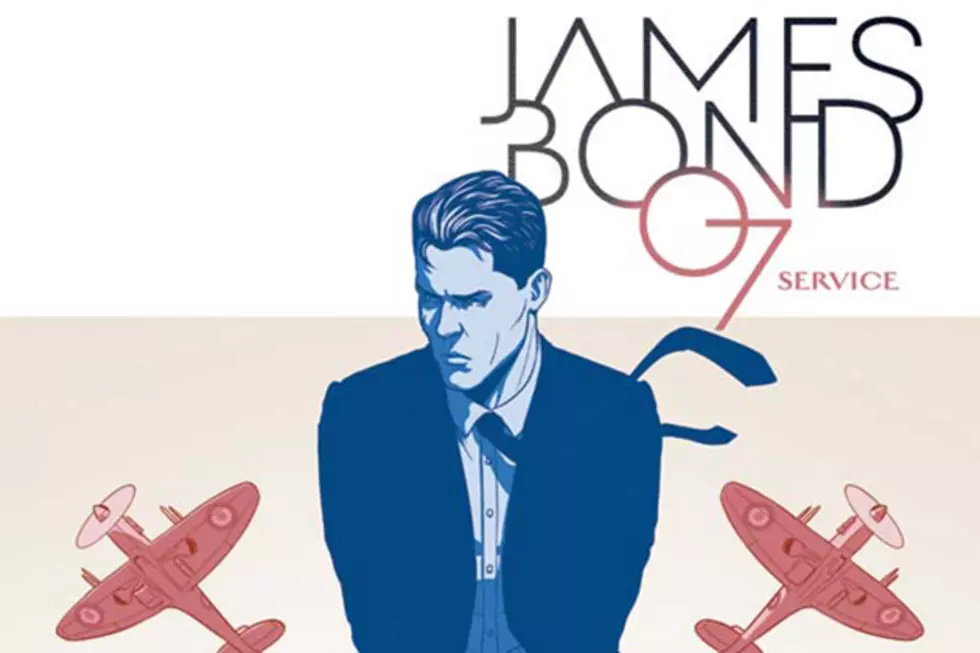
Thumbnail: The Wicked and The Decapitated – The WicDiv Covers of Jamie McKelvie
Thumbnail is a new recurring feature on ComicsAlliance in which we invite our writers to reflect on comic book details that deserve a little extra attention, whether it’s a favorite character, and artistic choice, or a striking page. For this installment, Steve Morris looks at the meaning behind Jamie McKelvie and Matt Wilson's The Wicked and The Divine covers — and the cruel joke they've been building up to.
Kieron Gillen and Jamie McKelvie have a history of calmly puncturing the self-satisfaction of characters who think they’re on top of the world. From Loki to David Kohl and, well, back to Loki again; the duo's storytelling style tends to create rich mythical worlds full of rules and standards in which the rules inevitably turn out to be fabulous lies, and things collapse spectacularly, appallingly.
It's a conceit they've become so adept at using that it' the central premise of their current Image series The Wicked and The Divine. In this series, readers follow a group of temporary gods as they enjoy their divine powers in whichever ways they see fit. They have two years of godhood and then they'll die: guaranteed. And although the gods have a very real power throughout the series, the creative team constantly reassure the reader that their reign is only temporary.
They’re going to die at the end.
This conceit is never clearer than in the main covers for the series, from McKelvie and colorist Matt Wilson. Each offers a portrait of one of the main characters, staring blankly out at the reader. They have the vivid glow of the otherworldly thanks to Wilson’s poppy colors, but McKelvie draws them all as human, open, and most importantly: attainable. The covers humanize these gods, and remind the reader of the lottery that exists within the series, where anyone could conceivably 'win' a chance at godhood.
But it's through these covers that the series managed to set up and pay off a bleak joke that caught everybody off-guard. Because, as implied early on in the series and confirmed at the end of the first arc, the essential expression of godly hubris in this world is, “You're going to get your head exploded off.”
These characters might be gods, and we might love them, but that doesn’t mean we aren’t going to laugh out loud at their misfortune --- as you probably did, darkly, when you first saw the cover to issue #11.
In Gillen and McKelvie's previous work together, 'the rules' bend and break into unexpected lies, dooming the protagonists --- but in The Wicked and The Divine, the heroes are doomed to Splatsville unless they break the rules somehow. That morbid irony is what makes the series so compelling.
More From ComicsAlliance

![Bond After Brexit: Kieron Gillen Declassifies ‘James Bond: Service’ [Interview]](http://townsquare.media/site/622/files/2017/03/Service_McKelvie-feat.jpeg?w=980&q=75)
![‘Black Cloud’ Goes Super Cute In Greg Hinkle’s Fried Pie Con Variant [Exclusive]](http://townsquare.media/site/622/files/2017/03/Black-Cloud-Featured.png?w=980&q=75)

![Comics’ Sexiest Female Characters (From A Queer Perspective) [Love & Sex Week]](http://townsquare.media/site/622/files/2017/02/hg_featured.jpg?w=980&q=75)


![The Hero We’ve Been Waiting For: ‘America’ #1 By Gabby Rivera And Joe Quinones [Preview]](http://townsquare.media/site/622/files/2017/02/America_1_Featured.jpg?w=980&q=75)

